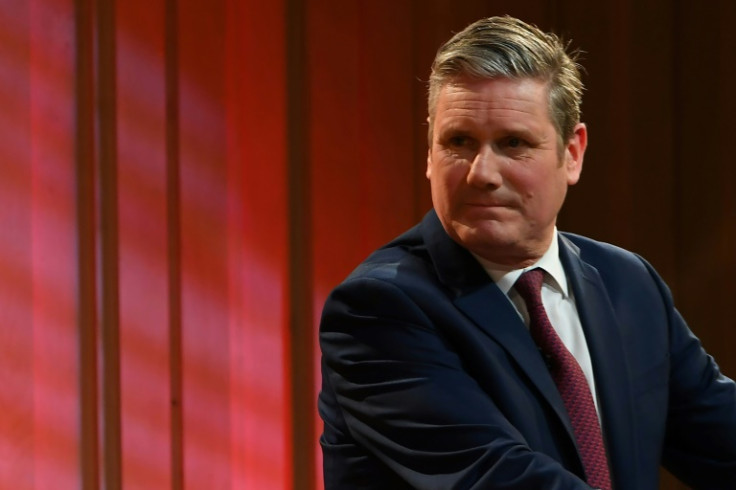'Strong trade unions' necessary says Starmer to Unite Policy Conference
Speaking at the 2023 Unite Policy Conference, the Labour leader Sir Keir Starmer referred to the importance of the TUC's recent victory at the High Court.

Labour's historic relationship with trade unions goes all the way back to the party's origin in the creation of the Labour Representation Committee in 1900. Funded by trade unions, the Committee later become the Labour Party in 1906.
One of the unions which affiliates with the Labour Party is Unite, which represents general workers in the public and private sectors. On the 13th of July, the Labour leader Sir Keir Starmer spoke at the Unite Policy Conference. The Labour leader also spoke earlier this month on Labour's mission to remove barriers that can lead to opportunities for people across Britain.
In his speech, the Labour leader stated the need for "a strong trade union movement that can reshape the rules which govern working peoples' lives". Moreover, according to Starmer, "the history of this country – of democracy around the world" demonstrates that prosperity and security for working people require "strong trade unions".
More specifically, the Labour leader was not ashamed to say that Britain needs strong trade unions "to make work pay". As well as strong trade unions, Britain needs a "dynamic government" that intervenes "on behalf of businesses and working people", as well as "higher economic growth".
Agency worker regulations
Starmer referred to "attacks on working people" and the trade union movement by the current Conservative government. For example, he mentioned the importance of the TUC's (Trade Union Congress) court victory against the government's agency worker regulations.
On the same day as Starmer's speech, the TUC won a legal case at the High Court against changes made to agency worker regulations back in the summer of 2022. The TUC coordinated the case on behalf of 11 trade unions including Unite, with the aim of protecting the right to strike.
Crucially, the government's changes allowed employers to use skilled workers supplied by agencies to plug gaps in the workforce created by strike action. Therefore, given that they allowed employers to undermine the effectiveness of strike action, the TUC refer to the regulations as "strike breaking".
According to TUC General Secretary Paul Nowak, "the government railroaded through this law change despite widespread opposition from agency employers and unions". Moreover, Richard Arthur, head of trade union law at Thompson Solicitors, has said that the TUC's victory at the High Court ensures that "the right to participate in industrial action is effective".
Back in 2022, the then Secretary of State for Business, Energy and Industrial Strategy, Kwasi Kwarteng stated that the legislation was in response to "militant trade union action threatening to bring vital public services to a standstill". However, the ruling of the High Court was that the unions were not consulted by Kwarteng before the changes were made, a requirement of the Employment Agencies Act 1973.
Pay disputes
On the issue of pay disputes, the Labour leader's stance is more ambiguous. Whilst Starmer spoke favourably of the TUC's victory against the government's changes to agency worker regulations, he was not willing to "wade into" negotiations over the recommendations of the independent pay review bodies.
Speaking on the issue of the public sector pay review, the PM announced that the government are "accepting the headline recommendations of the Pay Review Bodies in full".
This means that public sector workers have been offered pay increases ranging from six per cent to 6.5 per cent. For example, junior Doctors will receive an average pay increase of 8.8 per cent, whilst the pay of most eligible doctors and dentists will be increased by at least six per cent this year.
Whilst the Labour leader said that he did not want to get involved in pay negotiations between trade unions and the government, he did say that "if the next Labour Government cannot break the suffocating hold low wages have on our economy and years of wage stagnation, then yes, we will have failed".
Furthermore, Starmer explained that in his view "working people have been told that good pay, fair work and dignity are barriers to growth". Labour's mission for growth is "a reformed labour market where we finally make work pay".
"A new architecture"
Starmer went on to describe the ambition of building "a new architecture" for the British economy. One centred around partnership in which Britain "can come together: worker and business; politics and people; four nations in a union" to fulfil the interests of working people "in three distinct ways".
They plan to accomplish this, firstly, through investment in "clean British energy, including carbon capture". The Labour leader emphasised the importance of energy security, cheaper bills "for the long-term", and "new jobs tomorrow and protection for jobs today".
Secondly, through "new institutions". For example, building a new Industrial Council to embody partnerships central to the British economy. Furthermore, building a new national energy company, Great British Energy, and a new National Wealth Fund, can aid in the restructuring of the British economy.
Thirdly, through "new incentives". For example, Starmer stated Labour's plans for a British Jobs Bonus that will ensure "investments in clean energy also create new jobs and supply chains in our industrial heartlands".
© Copyright IBTimes 2025. All rights reserved.




















